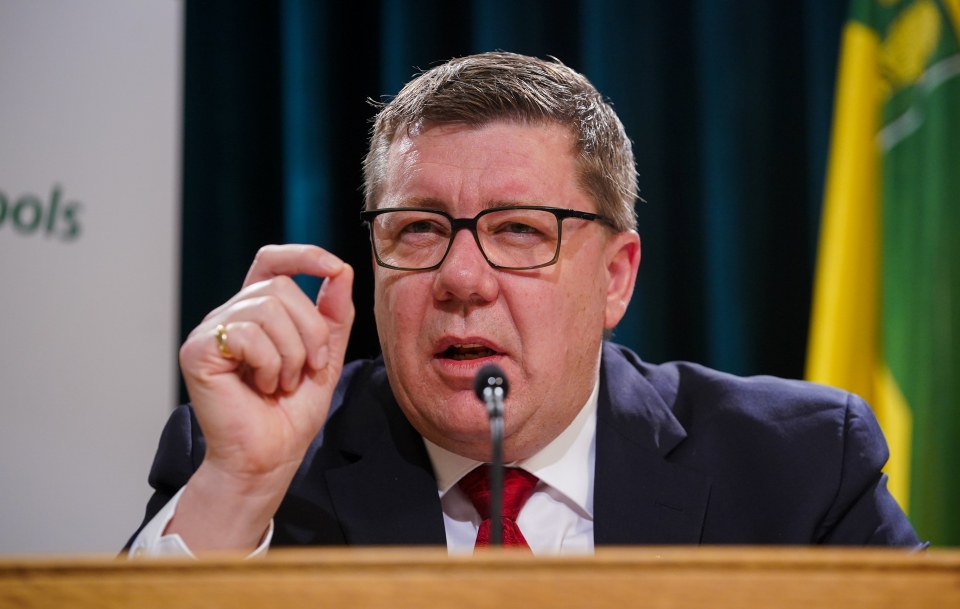Rosthern-born pilot Ernest Archibald (PeeWee) McNab was flying over southern England with other Canadian pilots on Aug. 15, 1940, when he saw a flight of German bombers below and pounced on them.
The 34-year-old squadron leader — the son of Saskatchewan’s then-lieutenant governor, Archibald Peter McNab — latched onto a twin-engine Dornier bomber and put the guns of his Hawker Hurricane fighter into play.

“He … managed to stay on his tail despite the Nazi pilot’s frantic efforts to roll and corkscrew to safety. When the raider steadied for a moment, the Canadian was able to get home with a short burst of machine-gun fire,” the Canadian Press reported.
“After another brief spot of hound-and-hare manoeuvring, a second blast by the scrappy (Saskatoon-area) flier gave the Dornier what airmen call a ‘pain in his belly.’ The raider spiralled away to earth and crashed in a marshland.”
With his actions, McNab became the first Royal Canadian Air Force (RCAF) airman in the Second World War to bag an enemy bomber and the first Canadian to see combat. Due to his actions during the Battle of Britain, the commanding officer of No. 1 Squadron was given the significant Distinguished Flying Cross.
McNab was one of 103 Canadian pilots — along with hundreds of support personnel — who participated in the war’s first major air battle, which began July 10, 1940.
Twenty-three Canadians — including four Saskatchewanians and 1,542 other Allied pilots — died during the campaign, which culminated with a massive aerial battle on Sept. 15, 1940. The Battle of Britain eventually concluded on Oct. 31, 1940, after the Germans turned their attention to bombing English cities.
Moose Jaw’s 15 Wing Air Base commemorated the “heroism and sacrifices” of those Canadian airmen during a moving ceremony on Sept. 15.
For Lt.-Col. Matthew Fullerton, acting wing commander, the ceremony had extra special significance because of his time studying in the United Kingdom from 2021 to 2022.
During that period, he attended a ceremony in downtown Swindon — west of London — that commemorated a Canadian pilot who crashed in that town because of mechanical troubles.
“And although it wasn’t part of the Battle of Britain period, what really resonated for me was … how much the Brits honour what Canadians did back in that period,” Fullerton said after the 15 Wing event.
“And it was humbling because I don’t think Canadians fully grasp how much the Royal Canadian Air Force — and by extension the rest of the (Canadian Armed Forces) — is respected in Europe and around the world.”
Unfortunately for Fullerton, he missed the actual Battle of Britain ceremony in London because of circumstances. Yet, he learned from colleagues about the “incredible experience” they had and the stories they heard from civilians and English veterans.
Still, he appreciated attending Swindon’s remembrance event because of how intimate it was.
15 Wing’s Battle of Britain ceremony had zero Second World War veterans, which Fullerton acknowledged was sad since that first-hand history and experience were not present to give context to the 84-year-old aerial battle.
“These folks help remind us what it takes to stand up against those kinds of threats. So I hope we don’t lose that,” he continued. “But it’s something that we’re not very familiar with since we’ve lived in a life of peace and security for many decades now.”
Fullerton noted that remembering events and learning lessons from the First and Second World Wars is important because of what’s happening in the world now with authoritarian regimes.
The lieutenant colonel hoped that the West today didn’t learn things “the hard way” as countries did 85 years ago, while it needed to provide a “credible deterrent” to prevent authoritarian countries from doing whatever they wanted.
“And we need to be prepared to use that deterrent. Otherwise, we’ll be faced with a very similar situation that they faced back then (in the Second World War),” he stated.
Since this year is also the RCAF’s 100th birthday, Fullerton added that that anniversary gives the organization a chance to reflect on “big occasions” in its history, with the Battle of Britain “definitely one of them.”







